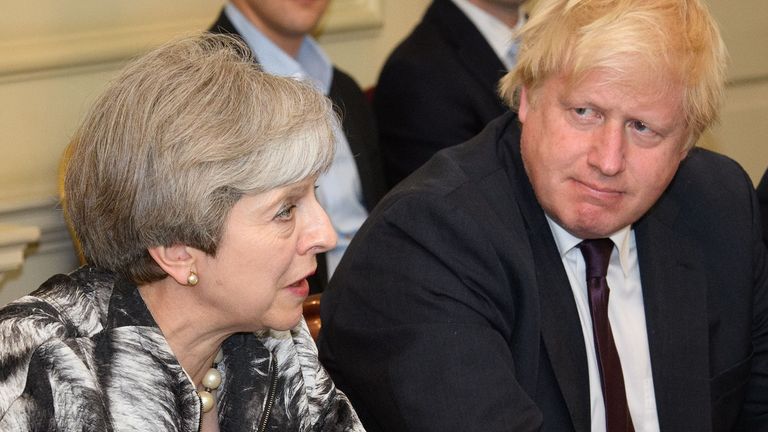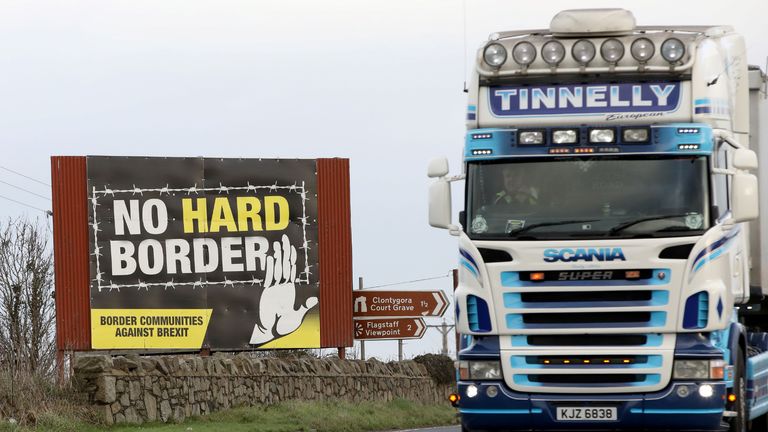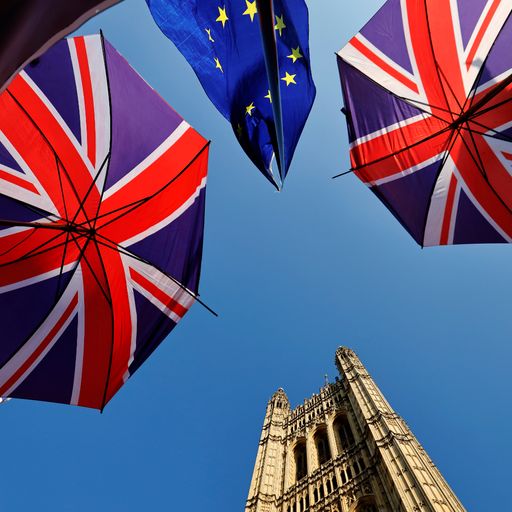Theresa May famously told the British Parliament that "no UK prime minister could ever agree" to a border in the Irish Sea.
Boris Johnson later told a Democratic Unionist Party conference that "no British Conservative government could or should sign up to any such arrangement".
Their words have come back to haunt them.
By agreeing to implement the Northern Ireland protocol of the Brexit Withdrawal Agreement, the government is effectively establishing a border between Northern Ireland and Great Britain.
Not that cabinet minister Michael Gove is admitting that.
"British sausages will still make their way to Belfast and Ballymena," he joked in the Commons.
Having threatened to break international law, the government has conceded on an east-west sea border, ensuring there is no need for a north-south land one.
Various mitigations, such as grace periods before some checks are required, will reduce the economic impact in the short term.
But Unionists fears a constitutional impact in the long term - with the DUP warning that "safeguarding the union is not a three-month, six-month or 12-month project" but "an enduring commitment".
The Ulster Unionist Party says the DUP's red line "has been washed away" and the Traditional Unionist Voice, another Unionist party, claims the deal leaves Northern Ireland "in the waiting room" for Irish unity.
The threat to break international law had raised Unionist hopes that the government might renege on its acceptance of a border in the Irish Sea.
Unionists rejected Theresa May's backstop, which would have kept all the UK in the EU's Single Market if that was necessary to avoid internal borders.
They have ended up with something much less palatable to them - an economic line down the Irish Sea, between Northern Ireland and Great Britain.
That is a border by any other name.





